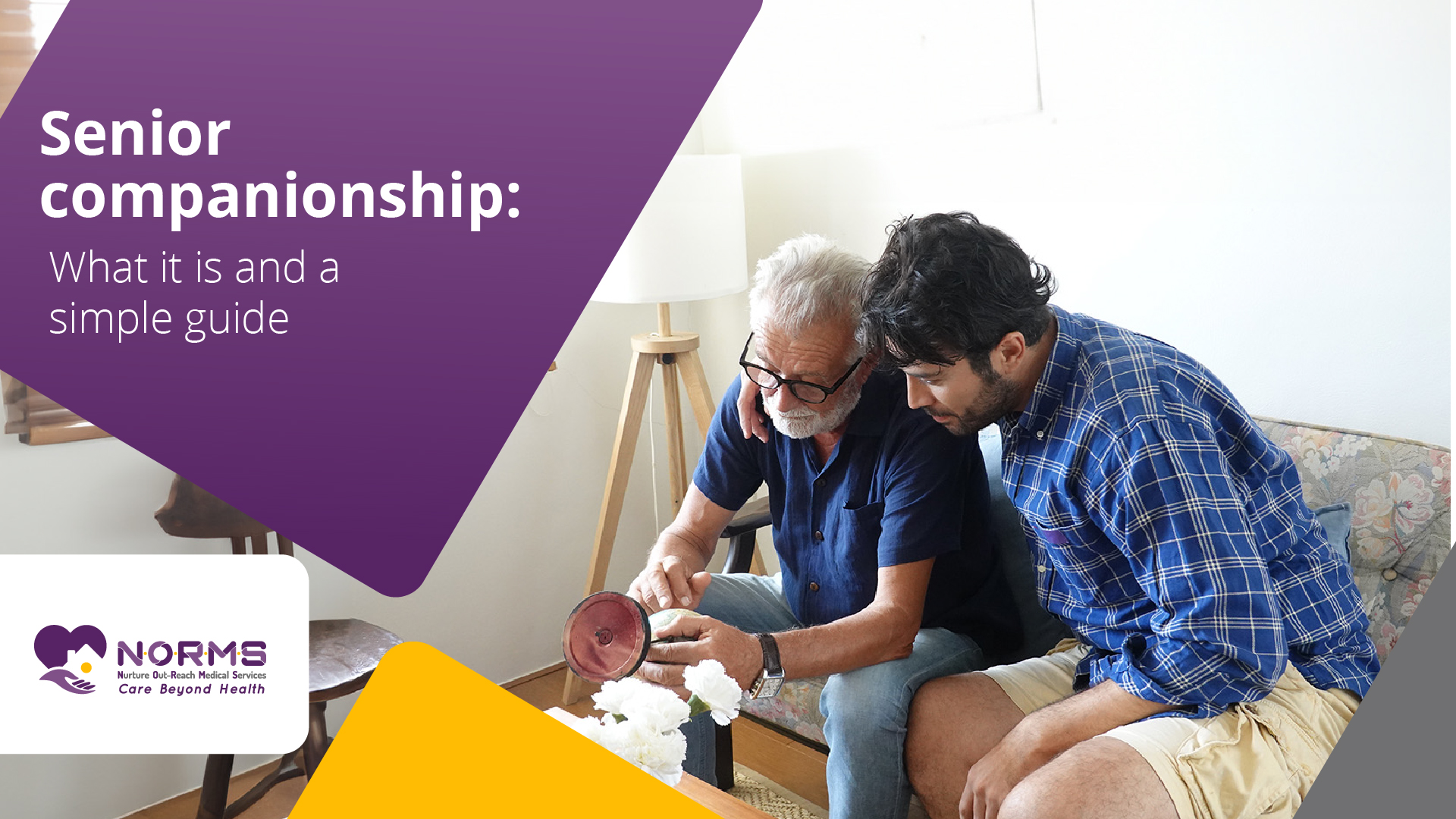
Old age brings isolation, loneliness, and lack of social contact, especially when they live alone or are geographically separated from relatives. Elderly care is a program designed to offer caregivers or companions to elderly people to offer them company and engage them in various activities that they can perform independently. The importance of companions cannot be overemphasized because they positively impact the lives of seniors and keep the elderly physically and psychologically well. This blog post will describe senior companionship and outline how to assist a senior family member through companionship.
Table of Contents
Senior companionship is a means to provide elderly care and follows a process of offering care services such as companionship for elderly people. Relatives, friends, or caregivers come in to spend quality time with seniors, talk with them, and assist in performing necessary actions. The first objective is to reduce feelings of loneliness, encourage socialization, and improve the senior’s quality of life.
Conversing and Socializing: Arranging for the senior to keep talking and interacting with friends and family or other people so that they have something in common to stimulate them mentally and socially.
Senior companionship is indispensable for elderly people as it eases depression and helps to give an emotional purpose to the lives of ageing people.
Mentorship doesn’t need to be formal; it doesn’t need to involve certifications, licenses or even degrees; what it needs is a heart that cares for a senior citizen, a mind that can tolerate the construction of an individual’s company and a spirit that sees worth in changing a senior’s life. Here’s a simple guide to offering meaningful companionship: Here’s a simple guide to offering meaningful companionship:
A crucial part of elderly care involves understanding them. First, learn more about the senior individual’s preferences, hobbies, schedules, etc. Knowing their interests allows you to carry out amusing activities so that the kid or adult will enjoy the materials presented.
Keep track of any challenges existing in a person’s life. For example, if the patient is paralysed or has food intolerances, you should know about it.
Engage in conversation with the seniors, listen to their experiences, share experiences, and discuss their favourite topics, news, or societal issues. This helps them to gain value and to be accepted for whatever they have to say.
Tell them to share their emotions and opinions, which can lessen anxiety, depression and feelings of loneliness.
Did some hobbies that the senior likes, such as card games, gardening, knitting or walking. It may help to keep them physically and mentally active, and in this way, it will be beneficial for them.
Depending on their abilities, motivating them to do these kinds of activities will increase their morale and variety in what they do.
Provide them with comfort and support, giving them a feeling of strength and being their shoulder to lean on. Just motivate them by telling them to continue being active, eating well daily, and living a healthy lifestyle. Always encourage them, including even the minor accomplishments that they make.
Simply help out in tidying the house for him or her, preparing meals as required, or organizing his or her living environment to make it conducive to living.
Assist them with transport for shopping, doctor’s appointments or other social events so they don’t become socially isolated.
This is true because consistency is vital in trust development and for fortifying companionship between two individuals. Simple things like visits, phone calls, and check-ins can go a long way to giving the person a sense that things are okay and that people are safe.
Be dependable, and do not be a perjurer. Unless you are sure that you will go to a place or engage in an activity you committed to, do not commit. Seniors value dependable companionship.
This means that as much as one would like to help, it is equally important not to overdo it but to understand that they are grown-ups capable of handling their lives on their own. It is important that they be allowed to make decisions for them selves each time this is possible.
I will accept their rights and choices, never impose myself on them, and, overall, let them feel as if they are in charge of their own lives.
While senior companionship is similar to merely spending time with an old man or woman, then it is a whole lot more than that because it entails nurturing a bond with the said elderly individual and even supporting them emotionally as well as physically. Having a companion enhances the quality of life for the elderly by providing them with a companion who can keep them physically active and socially content or even improve their outlook on life.
Senior companions should be patient, empathetic, punctual and attentive to what’s said. They should also never miss the chance to show interest and spend quality time with the seniors.
Indeed, social contact and company are essential and when provided can greatly lower the level of loneliness, and may help prevent depressive illnesses in seniors.
How often one should visit depends on the senior’s needs and discretion. It is usually advisable to visit once or twice a week, though some elderly people may prefer daily visitation.